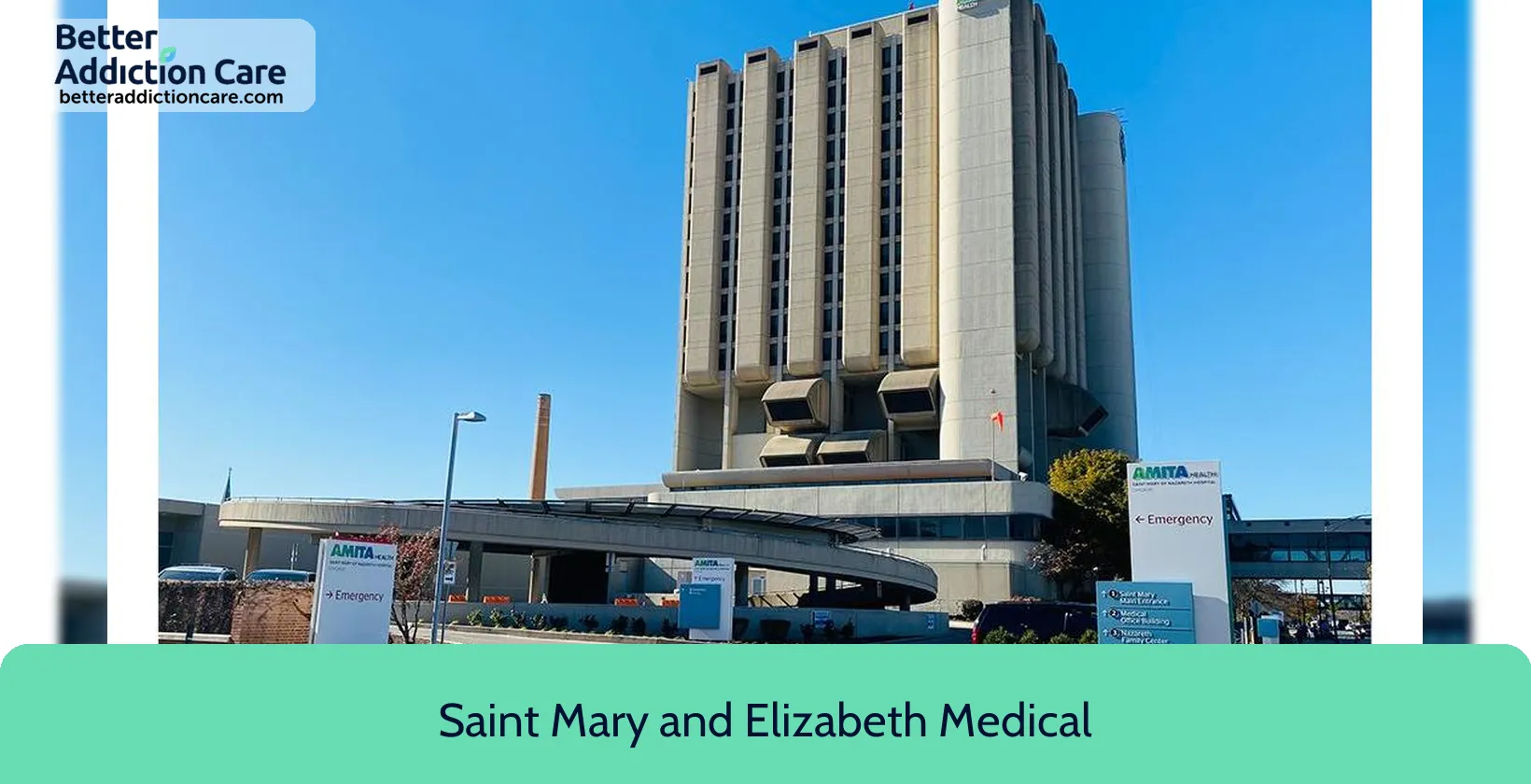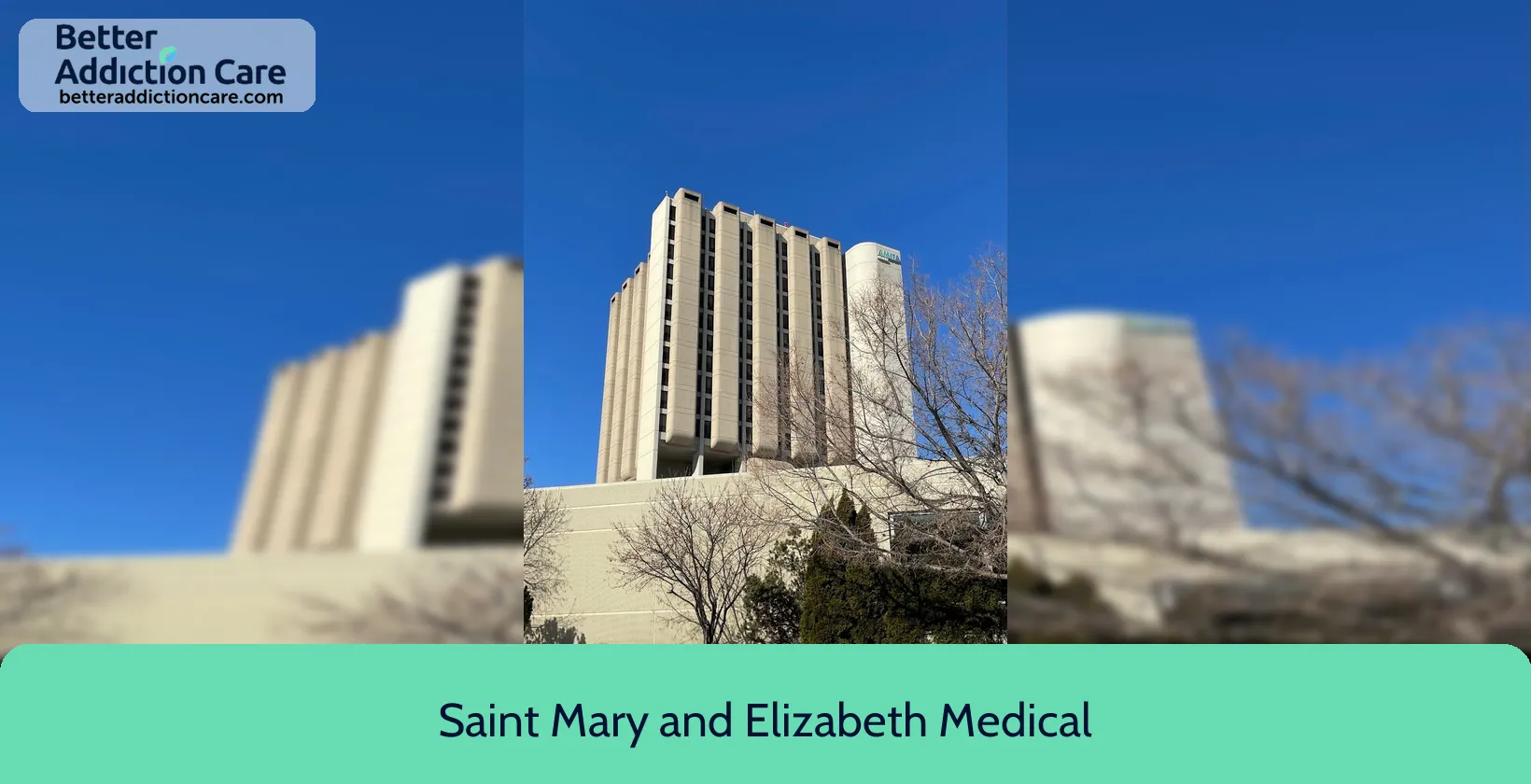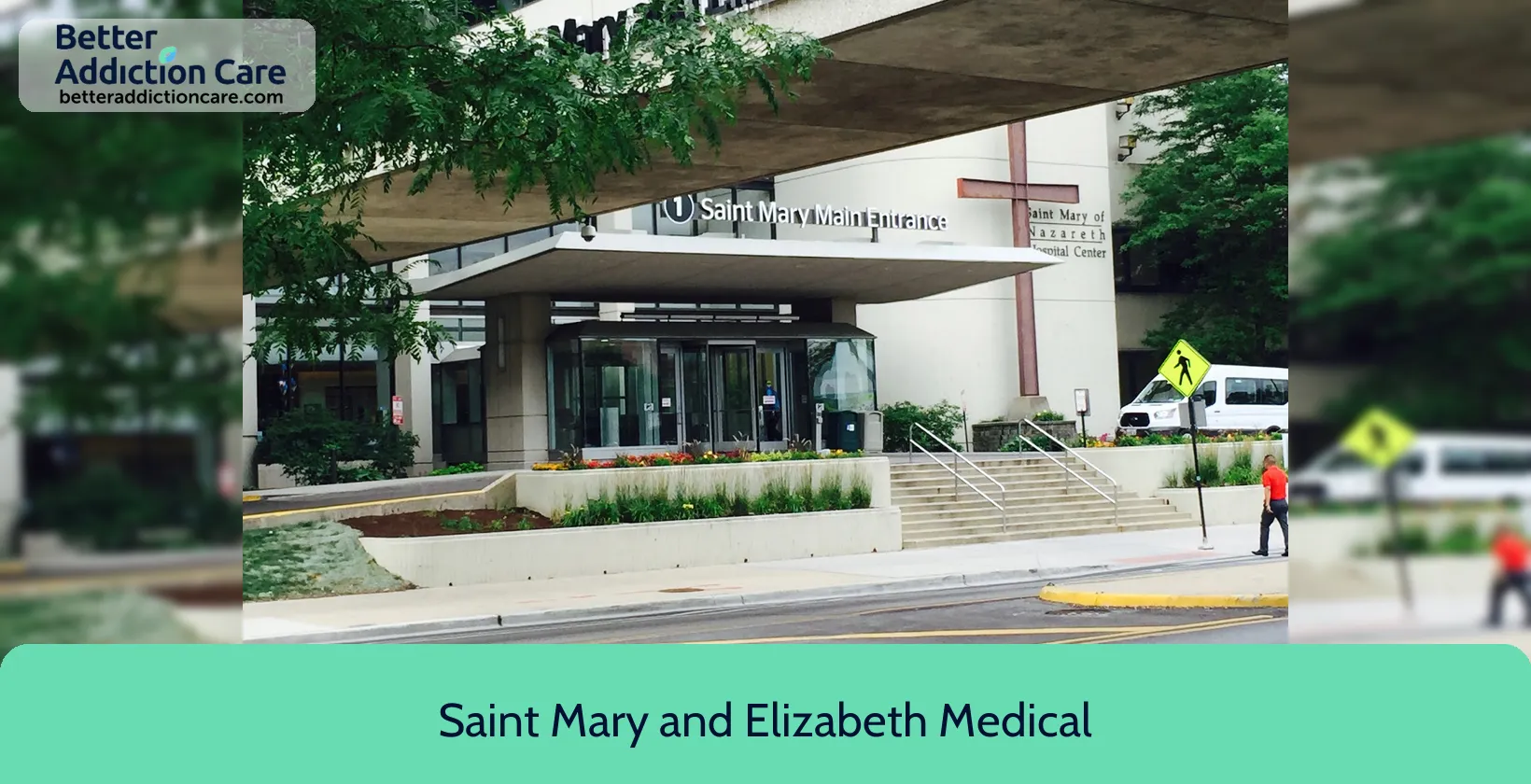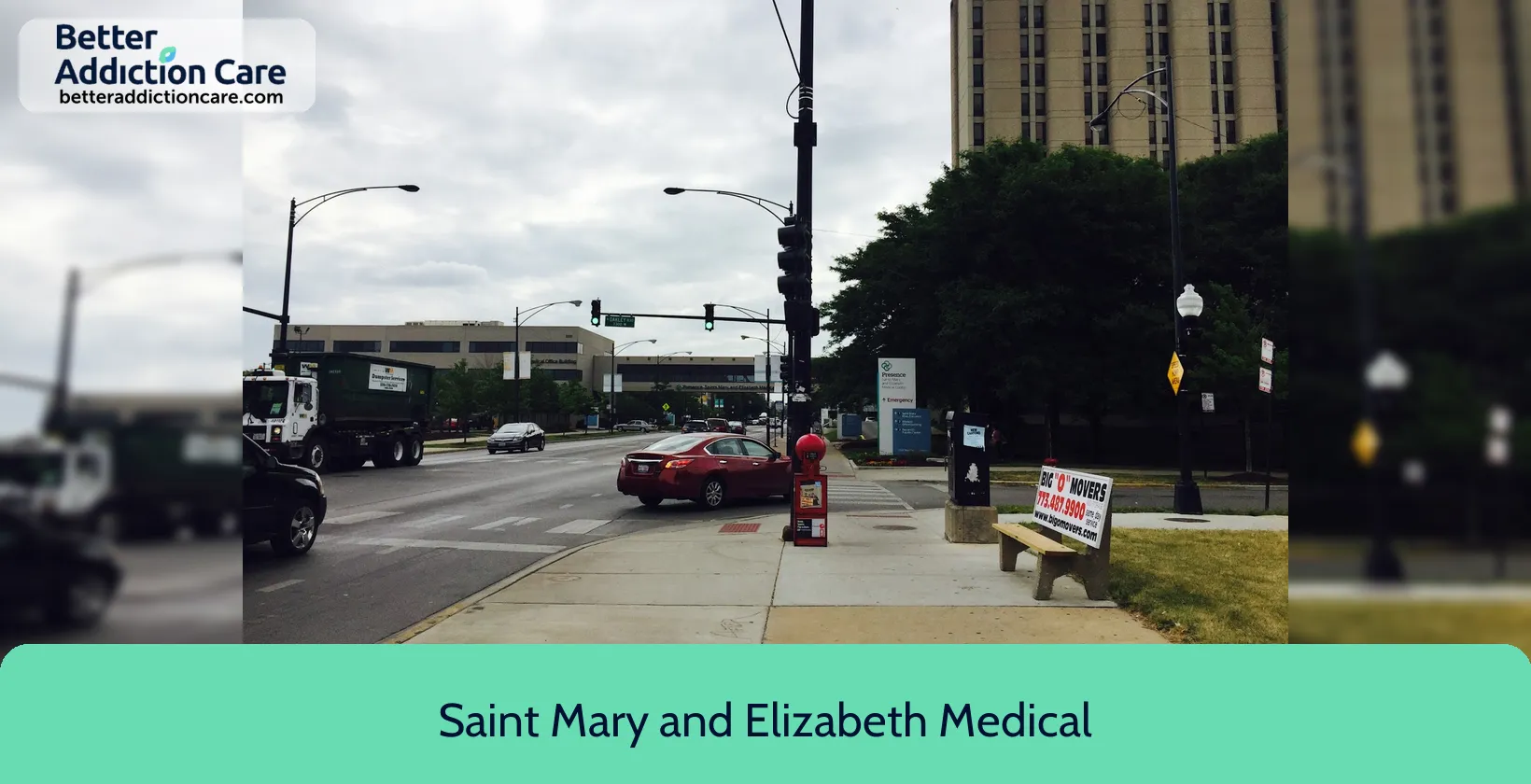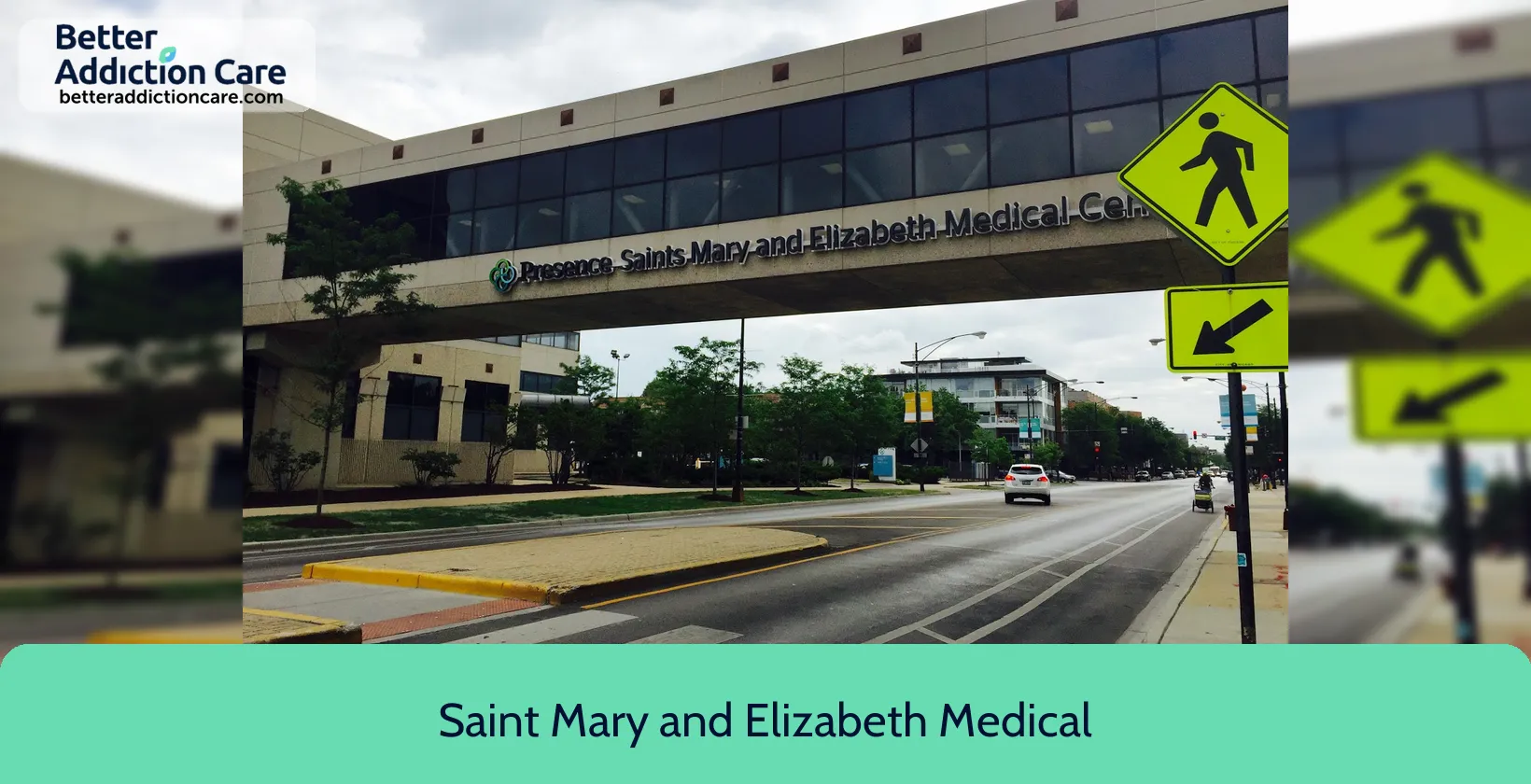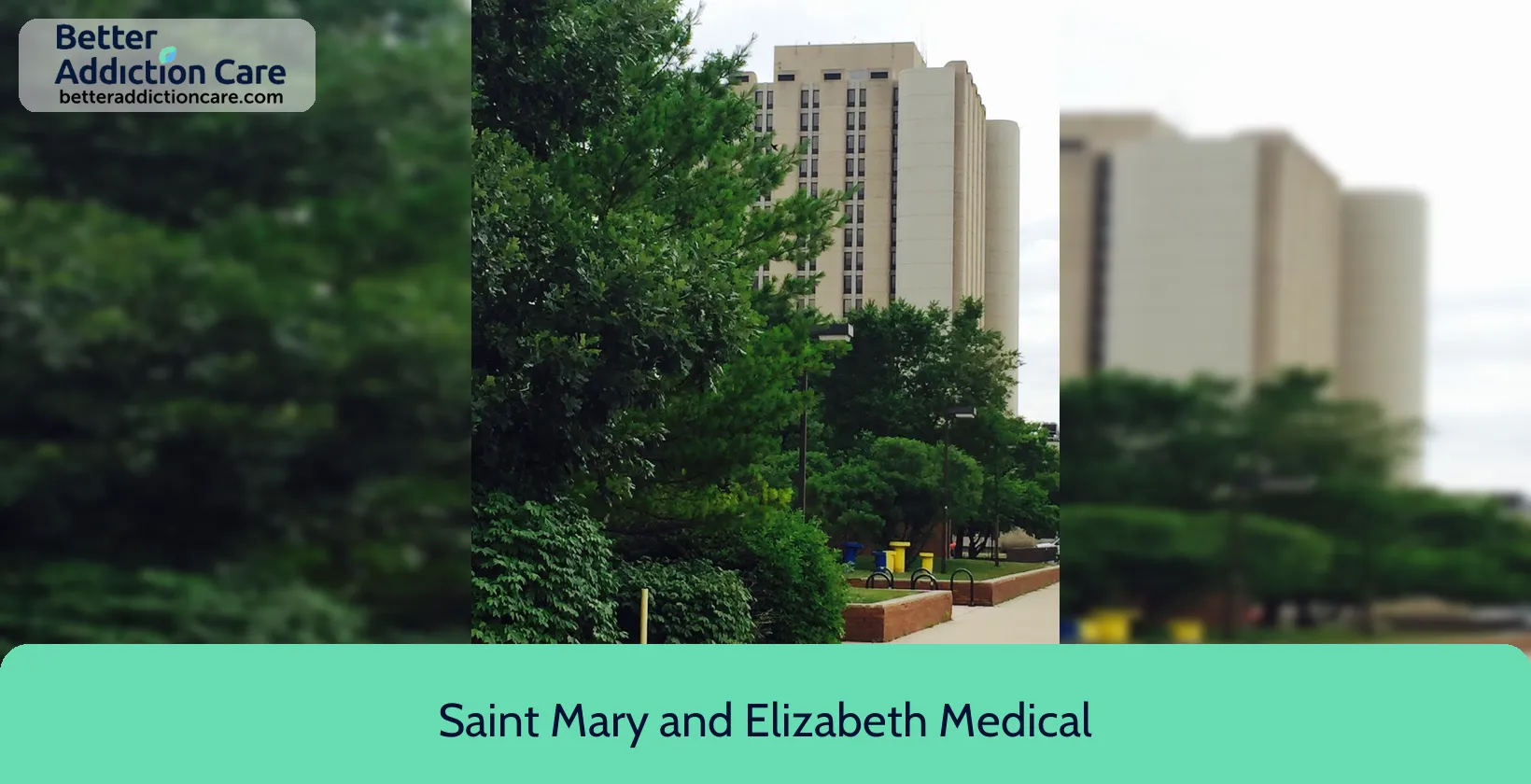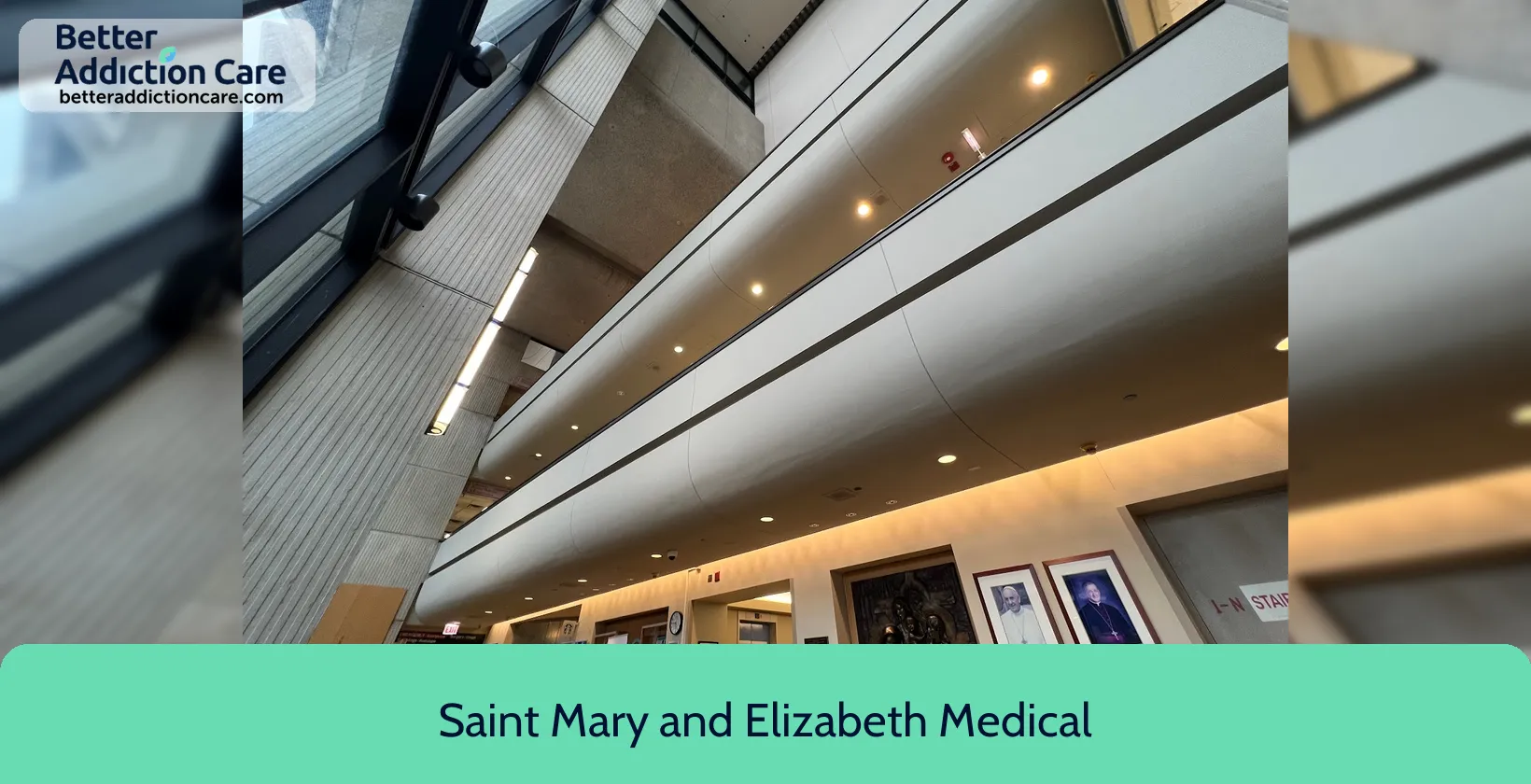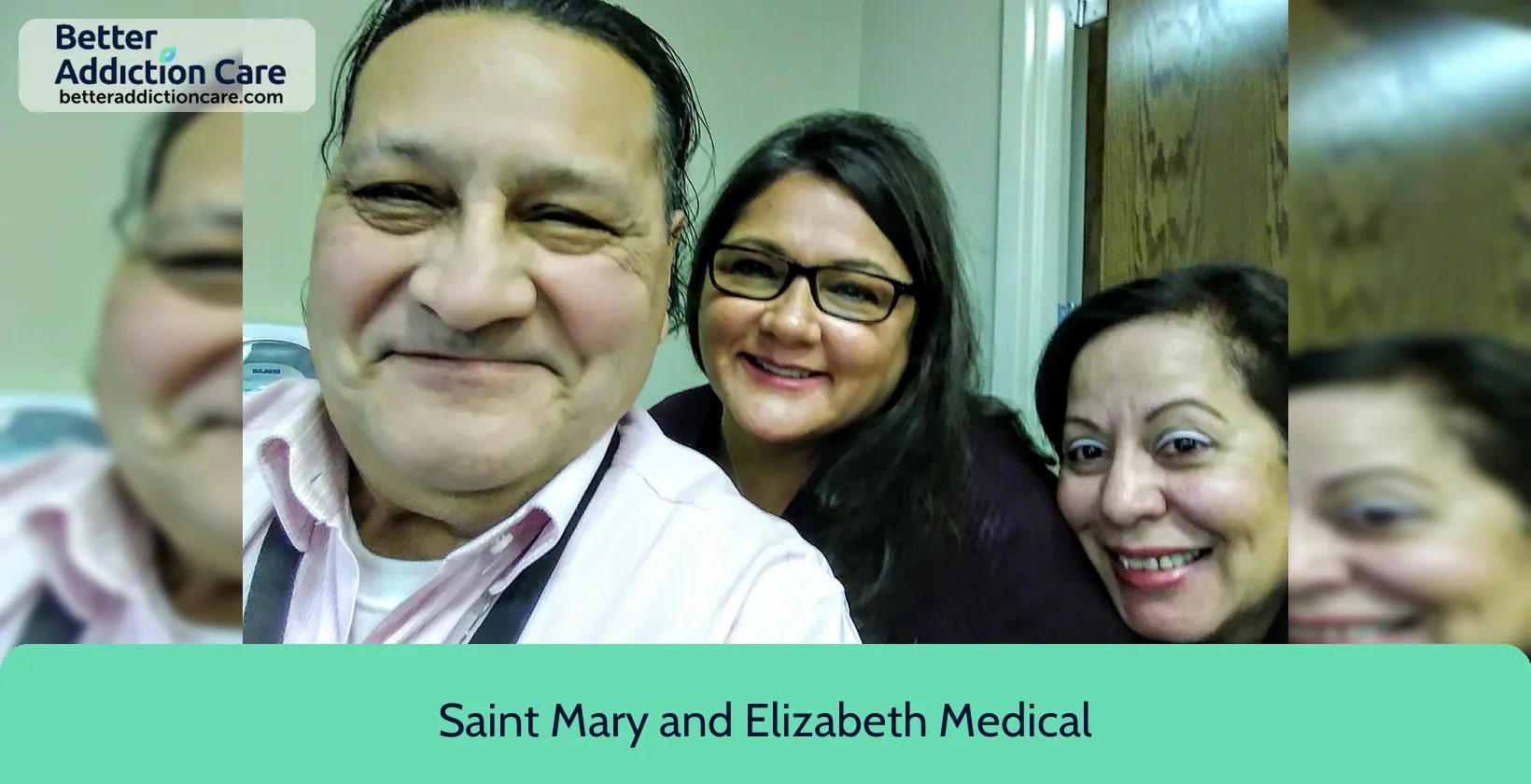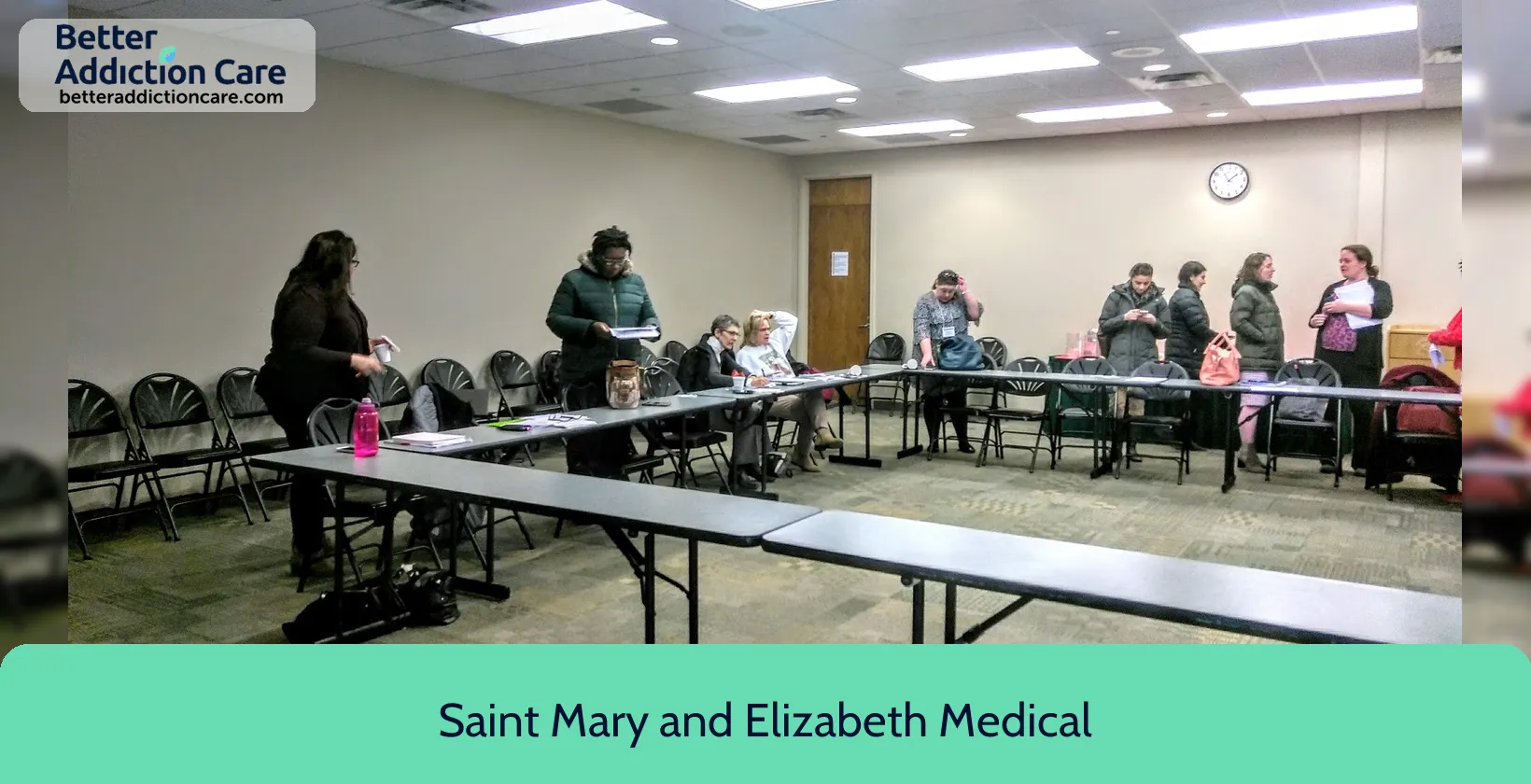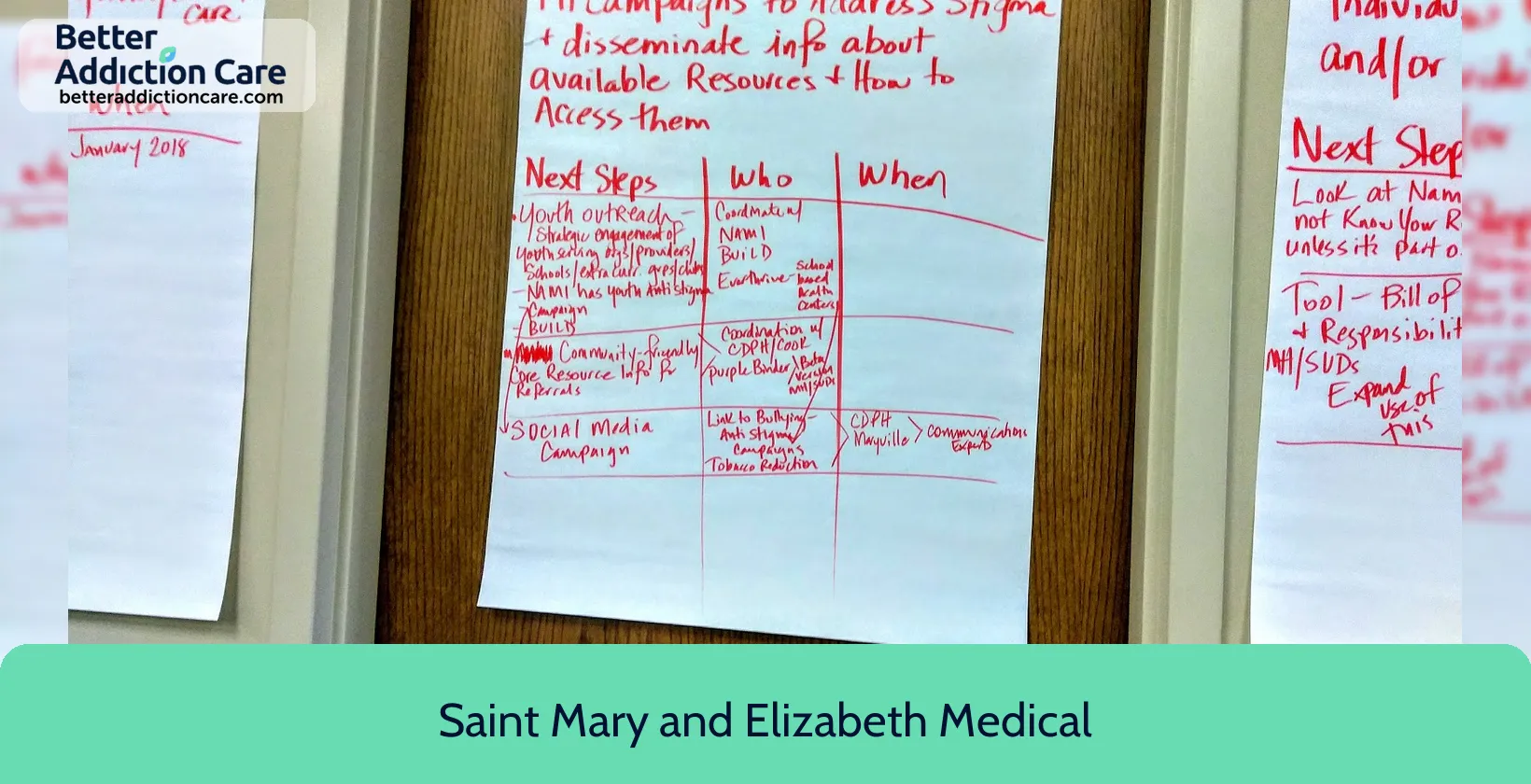Overview
Saint Mary and Elizabeth Medical Center - Saint Mary's Campus is a mental health treatment center for people seeking treatment near Cook County. As part of their treatment modalities for recovery, Saint Mary and Elizabeth Medical Center - Saint Mary's Campus provides couples/family therapy, group counseling, and cognitive behavioral therapy during treatment. Saint Mary and Elizabeth Medical Center - Saint Mary's Campus is located in Chicago, Illinois, accepting cash or self-payment for treatment.
Saint Mary and Elizabeth Medical Center - Saint Mary's Campus at a Glance
Payment Options
- Cash or self-payment
- Medicaid
- Medicare
- State-financed health insurance plan other than Medicaid
- Private health insurance
Assessments
- Screening for tobacco use
- Comprehensive mental health assessment
- Comprehensive substance use assessment
Age Groups
- Seniors or older adults
- Young adults
- Children/adolescents
- Adults
- Seniors
Ancillary Services
- Intensive case management
- Case management service
- Chronic disease/illness management
- Court-ordered outpatient treatment
- Diet and exercise counseling
Highlights About Saint Mary and Elizabeth Medical Center - Saint Mary's Campus
6.74/10
With an overall rating of 6.74/10, this facility has following balanced range of services. Alcohol Rehabilitation: 8.00/10, Drug Rehab and Detox: 6.00/10, Insurance and Payments: 6.00/10, Treatment Options: 6.97/10.-
Alcohol Rehabilitation 8.00
-
Treatment Options 6.97
-
Drug Rehab and Detox 6.00
-
Insurance and Payments 6.00
Accreditations
The Joint Commission:

The Joint Commission accreditation signifies that a facility has met rigorous standards of excellence in patient care, treatment, and safety. It assures individuals and healthcare professionals that the accredited facility provides high-quality, evidence-based care for addiction and mental health issues, fostering trust and confidence in their services.
Treatment At Saint Mary and Elizabeth Medical Center - Saint Mary's Campus
Treatment Conditions
- 24-Hour Clinical Care
- Mental health treatment
- Alcoholism
- Substance use treatment
- Co-occurring Disorders
Care Levels
- Hospital inpatient/24-hour hospital inpatient
- Halfway house
Treatment Modalities
- Couples/family therapy
- Group counseling
- Cognitive behavioral therapy
- Dialectical behavior therapy
- Integrated Mental and Substance Use Disorder treatment
Ancillary Services
Languages
- Sign language services for the deaf and hard of hearing
- Spanish
- Other languages (excluding Spanish)
- Polish
- Tagalog
Special Programs
- Clients with co-occurring mental and substance use disorders
- Veterans
- Active duty military
- Members of military families
- Criminal justice (other than DUI/DWI)/Forensic clients

Additional Locations
Common Questions About Saint Mary and Elizabeth Medical Center - Saint Mary's Campus
Contact Information
Read our Most Recent Article About Drug Addiction
DISCLAIMER: The facility name, logo and brand are the property and registered trademarks of Saint Mary and Elizabeth Medical Center - Saint Mary's Campus, and are being used for identification and informational purposes only. Use of these names, logos and brands shall not imply endorsement. BetterAddictionCare.com is not affiliated with or sponsored by Saint Mary and Elizabeth Medical Center - Saint Mary's Campus.
